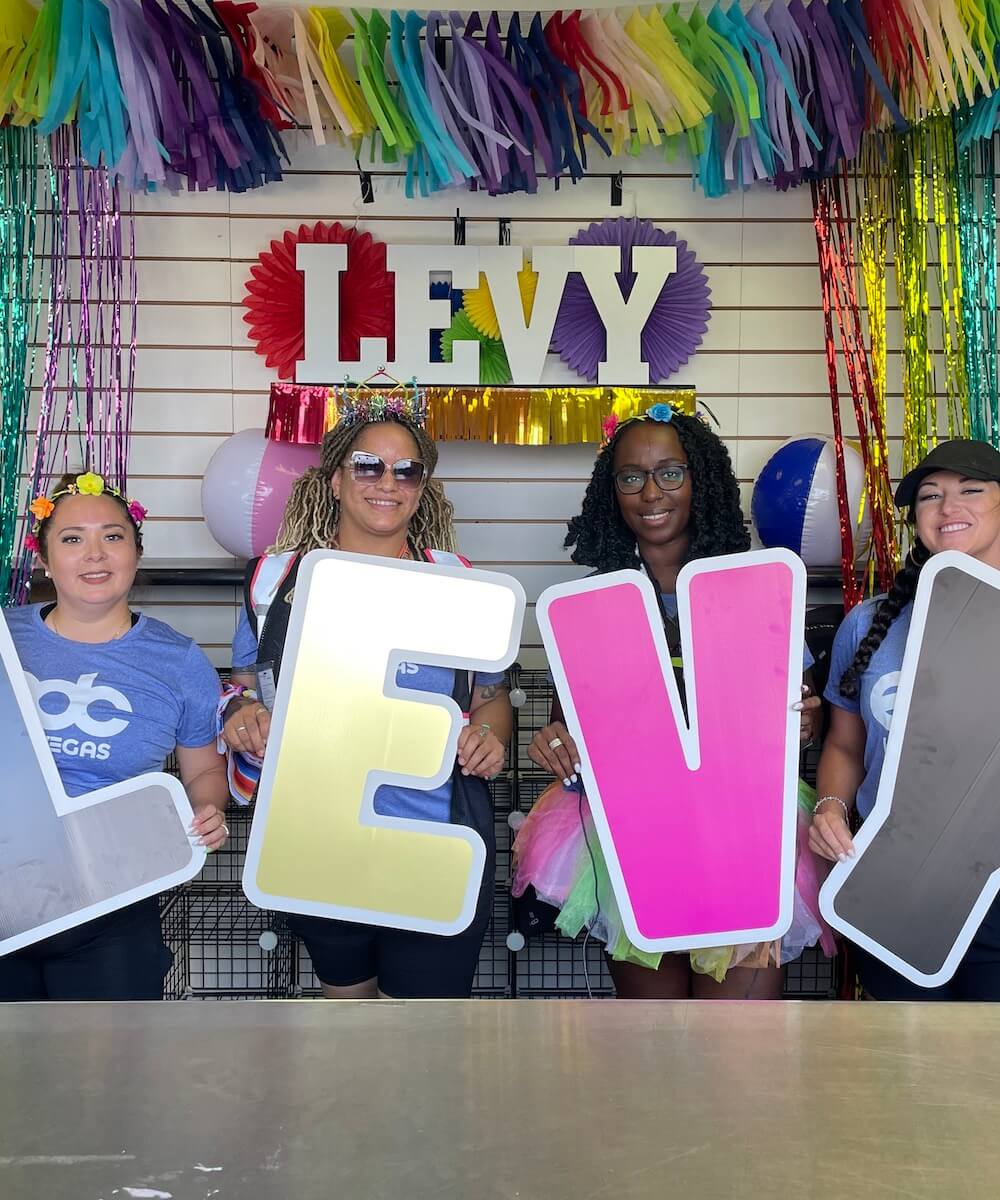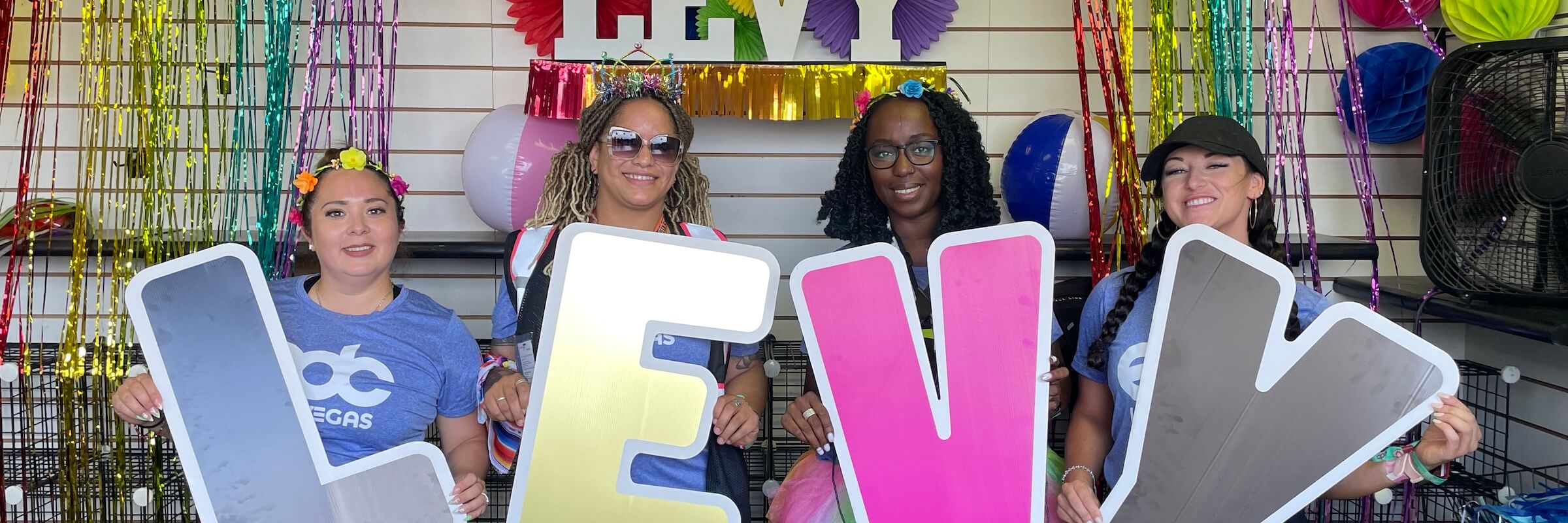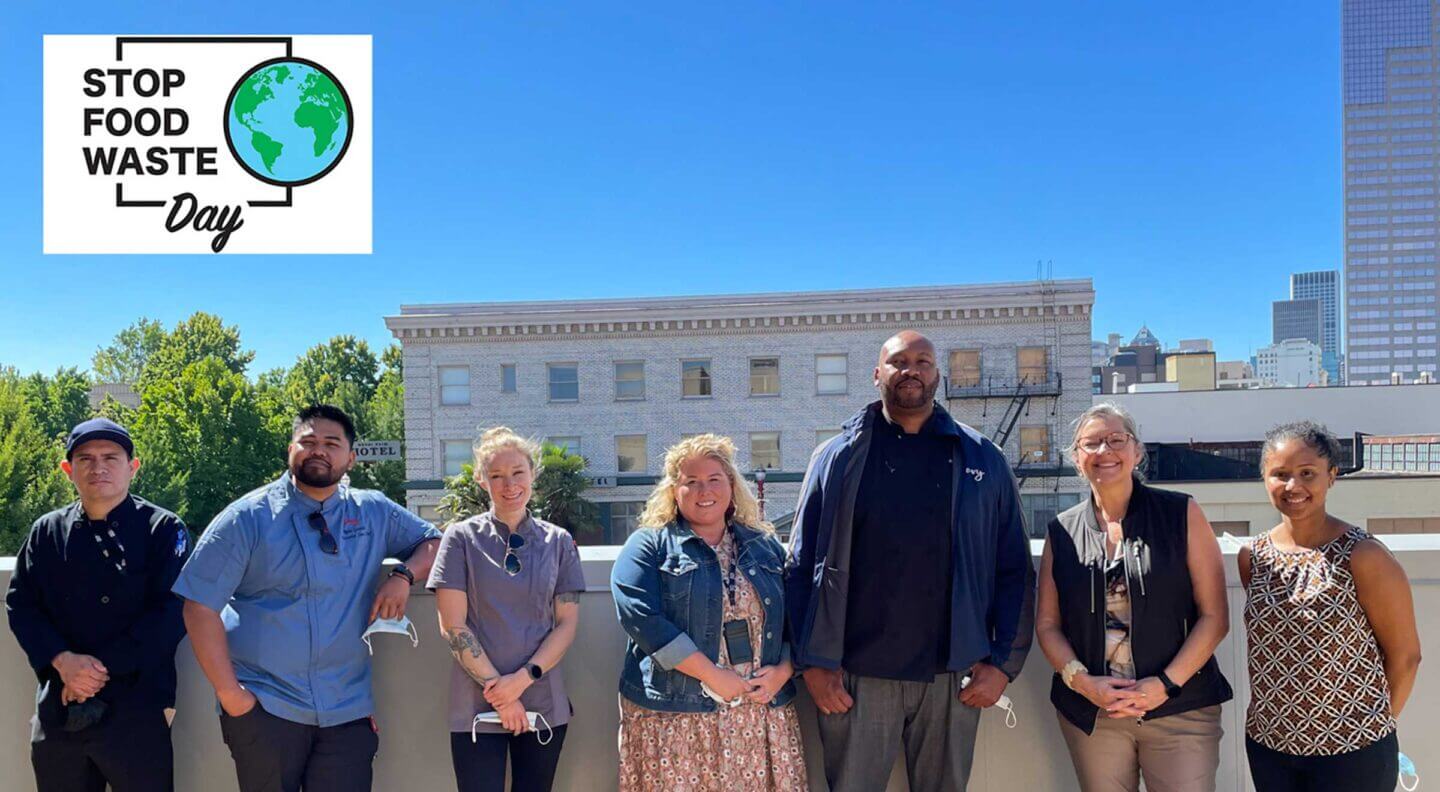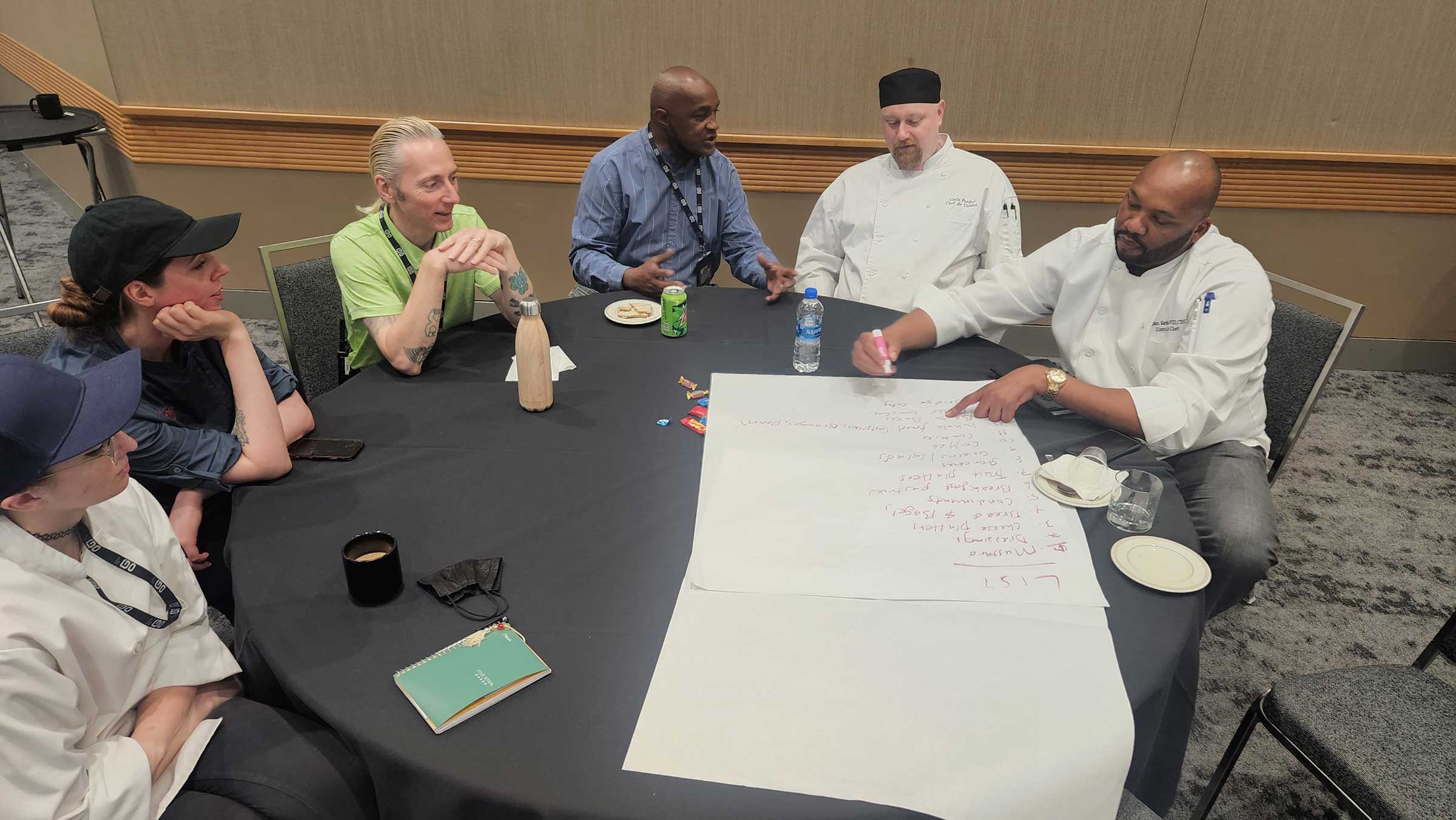Life At Levy


Stop Food Waste Day: Building a More Sustainable Future at Levy

Each year on Stop Food Waste Day, we join with the Compass Group family to renew our commitment to reducing food waste and operating more sustainably. The initiative began in 2017 to shift the landscape regarding food waste and has since become recognized as an official day of observance in major cities across the country, creating awareness and furthering education about ways we can all be better stewards of our environment. In celebration of the 7th annual Stop Food Waste Day, let’s dive into a few of the ways our locations are bringing this commitment to life.
“Wasting Not”
Waste Not 2.0 is a digitized waste-tracking platform used across many different Compass sectors, and it has already made an impact at the locations that have adopted it. The program was initially rolled out late in 2022 across fifteen pilot locations, where Levy’s sustainability leaders and location operators learned valuable lessons about implementing and measuring waste-tracking systems across our business. A key finding from the initial rollout was one factor that dramatically impacted the success: inclusion.
“We have a responsibility to our community, our industry, and our planet to lead the charge when it comes to reducing food waste,” said Jeff Zoeller, Senior Vice President of CORE Solutions at Levy. “We got feedback throughout this process that more and more people wanted to be involved. At the end of the day, getting our team members to buy in is all about connecting with their purpose and their motivation. Everyone needs to be in the room to engage as wide an audience as possible.”
“The goal of this platform is to have an easy, functional way to track waste,” said Mary McCarthy, Director of Sustainability at Levy. “You can’t manage what you don’t measure, so Waste Not 2.0 has helped us be much more conscious about the waste we’re producing.”
After the pilot concluded in November, the CORE Solutions team began a full-court press to implement Waste Not 2.0 at more venues, with the goal of 50 locations by the end of 2023 and all Levy properties in the near future. According to McCarthy, making food waste reduction the focal point at the start will open up many avenues to continue reducing our carbon footprint.
“Food waste is foundational,” McCarthy expressed. “It’s one of the biggest areas where we can directly create change because it’s almost completely within our control. That makes it a great place to start.”

Creating a Culture of Conservation
Programs like Waste Not 2.0 are only as effective as the commitment of the team putting them into practice. One location that has jumped out to a head-start by making sustainability a shared effort between all team members is the Levy team at Oregon Convention Center. The location has embraced the mission of reducing food waste by holding educational workshops for team members and performing waste audits on their procedures to determine the most impactful changes possible. These exercises have taught the team valuable lessons about how simple mindset shifts can make a difference.
“Small changes can make a huge impact,” said Lindsay Pearson, General Manager for Levy at Oregon Convention Center. “It’s really important to see the whole picture and remind ourselves that bigger is not always better in the food industry. It can be as simple as serving seven rolls instead of ten or offering coffee service upon request, but those little things really add up.”
Since embarking on this journey, the team has developed a strong culture around waste reduction and sustainability. Pearson echoed the sentiment about the importance of inclusivity in getting these types of initiatives off the ground.
“The key to our success was including team members from all levels of our operation,” she recalled. “That was the only way to get people excited and start establishing a culture.”
Shifting Our Mindset
Stop Food Waste Day is a time to celebrate the innovative ways venues across the country are tackling conservation and sustainability. It is also a reminder that there is still more to do. The path to reducing the collective carbon footprint of our industry is continuous. What we have learned is that we are best able to make a lasting impact by committing to shift how we think about topics like sourcing, energy use, waste diversion, and so much more.
“So much of food waste reduction is about mindset shift and cultural change,” said McCarthy. “You just can’t talk about it enough. Having an intentional moment like Stop Food Waste Day, where we celebrate folks who are doing really great work in this area, that’s huge.”
Posted in: Events Innovation Our People Work of Change